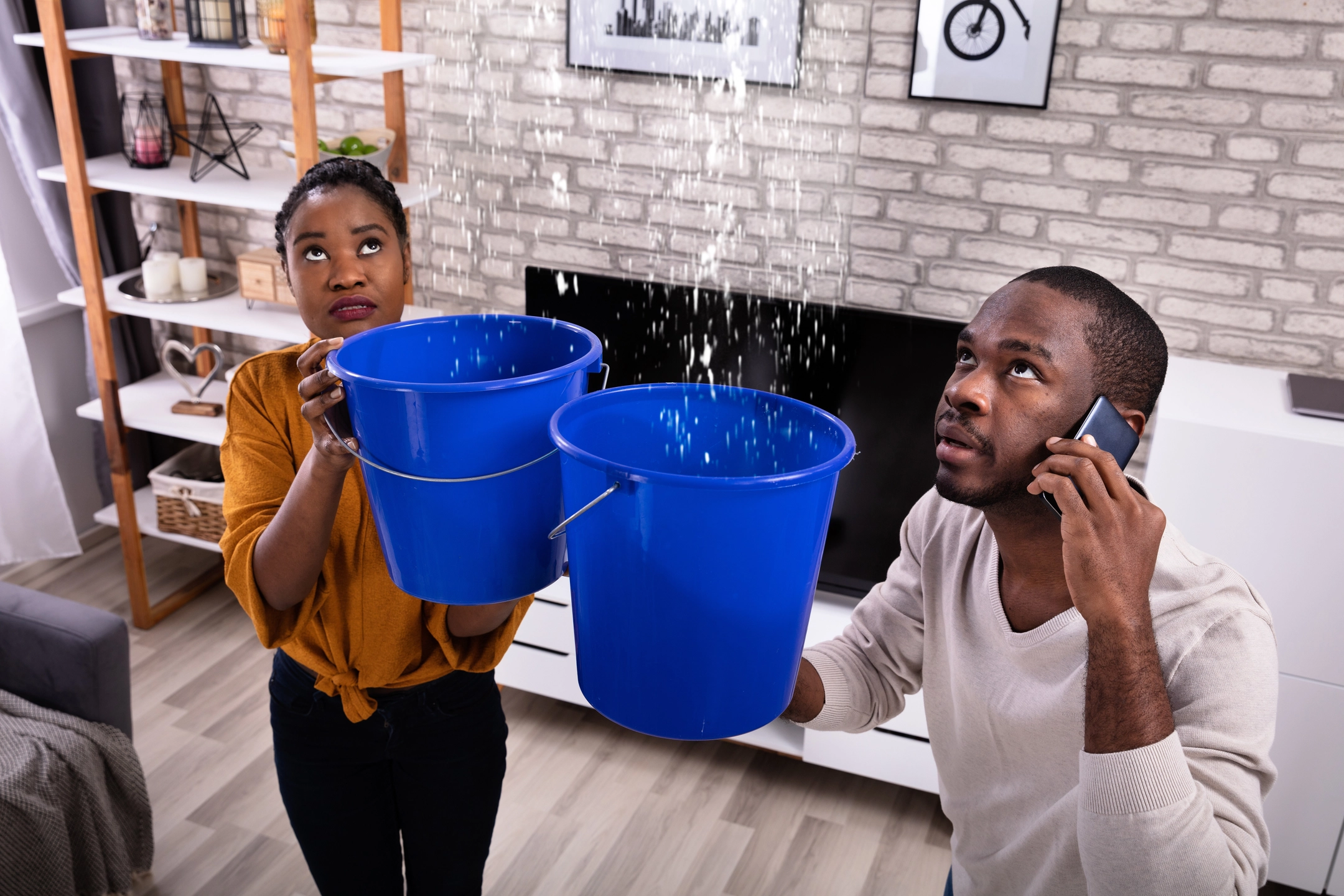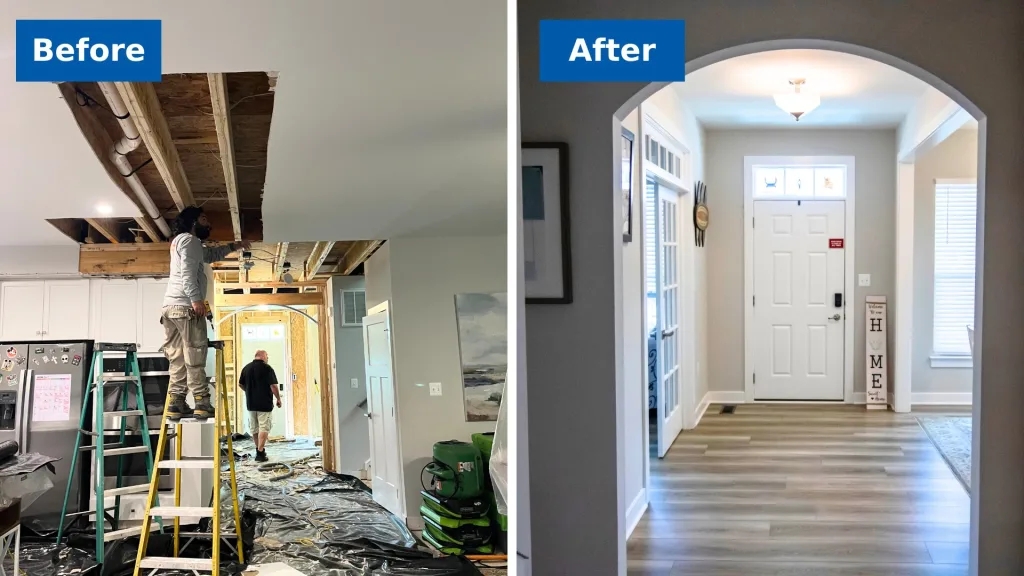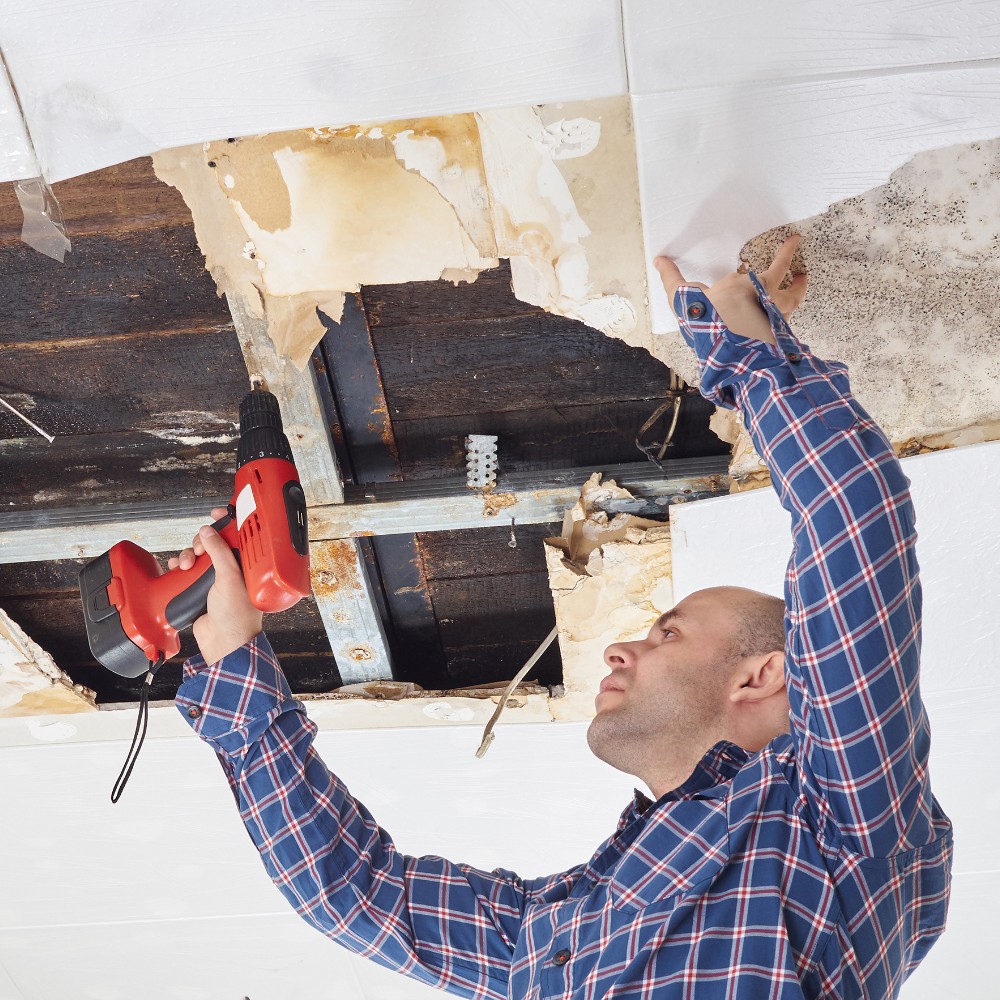Your Step-by-Step Emergency Plan for Smoke Damage Restoration at Home
Your Step-by-Step Emergency Plan for Smoke Damage Restoration at Home
Blog Article
The Complete Overview to Browsing the Difficulties of Water Damage Remediation
Water damages can strike suddenly, leaving you with a challenging mess to cleanse up. Understanding the reasons and evaluating the extent of the damage is crucial. Your prompt actions can make a significant distinction in the end result. What steps should you take first, and exactly how can you ensure you're protected relocating onward? The solutions lie in an extensive approach to remediation that every home owner should understand.

Comprehending the Reasons For Water Damages
Water damages can strike unexpectedly, often leaving you clambering to deal with the aftermath. Recognizing the root causes of water damages is necessary for prevention. Flood Damage Restoration. Common wrongdoers include dripping roofings, ruptured pipelines, or malfunctioning appliances. You may additionally run into issues with your plumbing systems, like clogged drains pipes or sewage back-ups, which can cause significant water intrusion. Weather-related occurrences, such as hefty rainfalls or flooding, can additionally unleash mayhem on your home. On top of that, the age of your home plays a function; older structures usually have degrading products that are more prone to leaks and damage. Even small issues, like condensation from heating and cooling systems, can gather and cause troubles in time. By identifying these possible sources of water damage, you can take proactive procedures to protect your home and reduce future dangers. Staying notified will encourage you to recognize early indications and act swiftly when issues occur
Evaluating the Level of the Damages
Evaluating the level of the damage is necessary for establishing the ideal response as soon as you've recognized a prospective water damages issue. Begin by evaluating the impacted locations completely. Try to find visible signs like water spots, warped floors, or peeling paint. Do not fail to remember to check surprise places, such as behind wall surfaces or under carpets, where moisture could linger.Next, established the sort of water entailed-- tidy, grey, or black-- since this affects the severity of the damage and necessary remediation steps. Use a dampness meter to gauge humidity levels in wall surfaces and floorings, aiding you identify remaining dampness that might cause mold growth.Document every little thing with pictures and notes, as this info can be crucial for insurance policy claims. By properly examining the damage, you'll be much better outfitted to select the best reconstruction method and avoid further concerns down the line.
Immediate Tips to Take After Water Damages
After experiencing water damages, the initial point you need to do is examine the circumstance carefully. Prioritizing your safety and security is important, so ensure the area is safe before taking any further steps. Don't fail to remember to record every little thing extensively, as this will certainly be very important for insurance coverage claims and remediation efforts.
Evaluate the Damages
Examining the damages promptly is crucial for decreasing the impact of water breach. Start by evaluating the affected areas to determine the degree of the water damage - Smoke Damage Restoration. Seek visible indicators like drenched carpetings, warped floorings, and discolored wall surfaces. Check for hidden water, too, particularly in crawl areas and behind devices. Use a dampness meter if you have one, as it can help determine areas that require focus. Paper whatever with notes and photos; this will certainly serve for insurance claims. Remember to examine your valuables as well-- furnishings and individual products might need expert cleaning or disposal. By understanding the extent of the damages, you can make educated choices concerning the following action in the reconstruction process
Prioritize Safety First
Recognizing the level of water damages is simply the beginning; your safety and security precedes. Prior to you go into a water-damaged area, make sure to turn off the electrical energy and gas supply to avoid any type of risks. Use safety gear, consisting of handwear covers and boots, to protect on your own from pollutants. Be careful of architectural instability-- ceilings, wall surfaces, or floors may have weakened. If the water is originating from a sewer source, stay clear of call and phone call experts for aid. Keep pets and kids away from the afflicted area. Evacuate quickly if you scent gas or see electrical triggers. Keep in mind, prioritizing your safety and security assurances you can effectively address the damages without risk to your health. Always err on the side of care.
Record Every Little Thing Completely
As you begin attending to water damage, documenting every little thing extensively is vital for both insurance claims and restoration initiatives. Begin by taking clear pictures of the affected areas, catching the extent of the damage. Make certain to keep in mind the date and time of the occurrence. Produce a listing of damaged things, consisting of furniture, home appliances, and personal items, along with their estimated worths. Tape any actions you take, like getting in touch with professionals or relocating things to avoid further damages. Maintain all receipts and invoices related to the reconstruction procedure. When submitting an insurance claim and aid the restoration team understand the scenario much better, this documentation will strengthen your case (Water Damage Cleanup). Bear in mind, complete paperwork can make a considerable distinction in your recovery trip

Mitigating Additional Problems and Protecting Against Mold Development
When water damages takes place, acting promptly can considerably lower the danger of additional concerns, particularly mold development. Initially, get rid of any standing water utilizing pumps or wet vacuum cleaners. Next off, completely dry out the impacted areas completely. Open up home windows, utilize fans, and take into consideration dehumidifiers to speed up the drying process. Go for a moisture level below 60% to prevent mold spores from settling.Inspect all materials and surface areas influenced by water; discard anything that can not be appropriately dried, like soaked carpets or drywall. Clean and sanitize remaining surfaces with a combination of water and cleaning agent, or a specialized mold-preventive solution.Keep an eye on the location over the next couple of weeks. Address it quickly if you discover any kind of moldy smells or discoloration. Remember, punctual activity not just avoids mold and mildew growth but likewise safeguards your residential property and health.
Dealing With Water Damage Restoration Professionals
After taking instant actions to alleviate water damage and prevent mold and mildew growth, it's time to contemplate expert assistance. Water damages restoration specialists have the know-how and equipment required to take care of comprehensive damage properly. When you reach out, be ready to explain the situation thoroughly. This assists them examine the intensity of the damages and prepare accordingly.Once they get here, expect a comprehensive examination and a comprehensive prepare for repair. They'll utilize customized devices to extract water, dry affected locations, and sanitize your room. Don't be reluctant to ask inquiries throughout the process; understanding their techniques can relieve your concerns.You must also review timelines and what to anticipate at each stage of the restoration. Collaborating freely with these specialists assurances you remain notified and involved, helping you reclaim your space a lot more successfully. Trust their experience, and you'll see your home go back to its pre-damage condition.
Navigating Insurance Coverage Insurance Claims for Water Damage
Navigating insurance coverage cases for water damage can feel overwhelming, specifically if you're not familiar with the procedure. Examine your insurance plan to recognize what's covered. Try to find specifics on water damages, as not all plans treat it the exact same. File the damage thoroughly-- take images and make notes concerning what took place and when.Next, call your insurance service provider promptly. Record the damages and offer them with your documentation. They'll appoint an insurer to assess the scenario. Be prepared to address questions and offer added info as needed.Stay arranged throughout the procedure. Maintain a record of all interactions, consisting of days, names, and information of conversations. If your insurance claim is refuted or you feel it's insufficient, don't think twice to appeal. Know that persistence can settle, so supporter on your own to assure you obtain the protection you're qualified to.
Tips for Future Water Damages Prevention
To keep your home risk-free from water damage, regular maintenance checks are essential. Do not ignore the value of setting up water discovery systems, as they can alert you to leakages prior to they become significant issues. By staying positive, you can save on your own time, cash, and stress later on.
Routine Upkeep Checks
While it may appear laborious, conducting regular maintenance checks can greatly reduce the threat of future water damage in your house. Begin by inspecting your roofing for missing out on leakages or tiles; even little concerns can rise swiftly. Check seamless gutters and downspouts to ensure they're clear and guiding water away from your foundation. Look for indications of dampness in cellars or crawl rooms, and address any kind of leakages from devices or pipelines immediately. Keep in mind to examine your sump pump frequently to verify it's working appropriately. Don't fail to remember about your cleaning maker hoses; change them every couple of years to avoid burst get more info calamities. By staying positive with these checks, you'll conserve on your own time, cash, and stress and anxiety over time.
Mount Water Detection Systems

Often Asked Concerns
How much time Does the Water Damages Remediation Process Typically Take?
The water damage remediation procedure generally takes anywhere from a few days to several weeks, depending on the extent of the damage. You'll desire to act quickly to minimize additional problems and expedite the procedure.
Can I Remain in My Home During the Restoration Process?
You can remain in your home throughout the reconstruction process, yet it depends on the degree of the damage. If it's extreme, it's more secure to momentarily move up until the job's finished and your home's secure.
What Personal Things Can Be Salvaged After Water Damage?
After water damage, you can usually restore items like apparel, books, and electronic devices, offered they're not saturated or musty. Constantly evaluate their condition swiftly and seek advice from experts for suggestions on remediation and safety and security.
Exist Any DIY Approaches for Recovering Water-Damaged Items?
Yes, you can utilize do it yourself approaches to recover water-damaged products. For furnishings, air-dry and use a timber conditioner. For fabrics, clean them completely and air-dry. Constantly check for mold and mildew before trying any repair.
Exactly How Can I Recognize Hidden Water Damage in My Home?
To determine covert water damage, look for water discolorations on walls and ceilings, listen for leaking noises, feel for wetness in materials, and check out areas near plumbing for indicators of mold or mold growth. Once you have actually recognized a prospective water damage concern, examining the degree of the damage is important for figuring out the proper response. As you begin resolving water damage, recording everything completely is essential for both insurance coverage claims and repair efforts. Water damages remediation specialists have the experience and equipment needed to deal with extensive damage efficiently. Installing water detection systems can be a game-changer for stopping future water damages in your home. The water damage repair procedure typically takes anywhere from a few days to numerous weeks, depending on the level of the damages.
Report this page